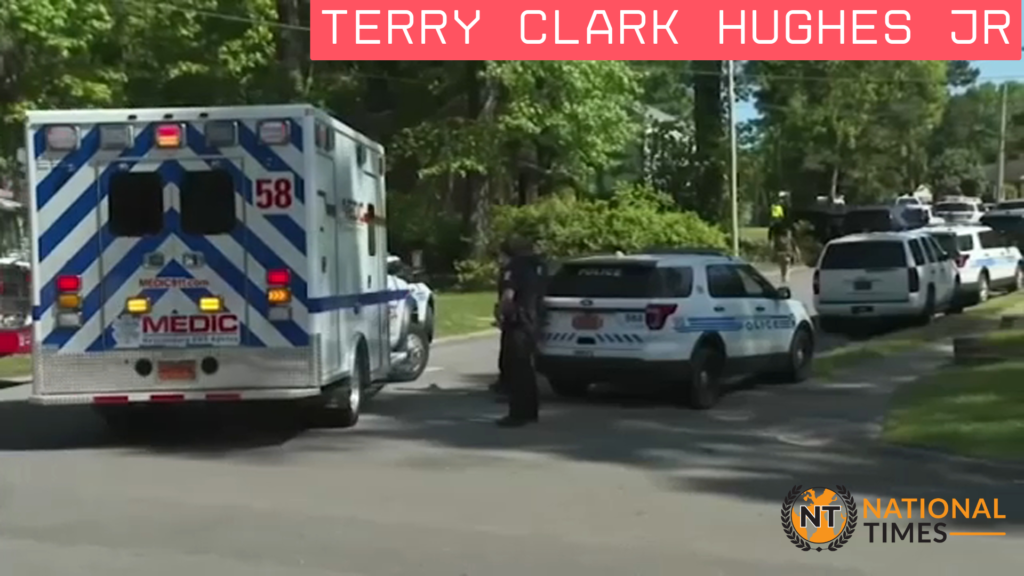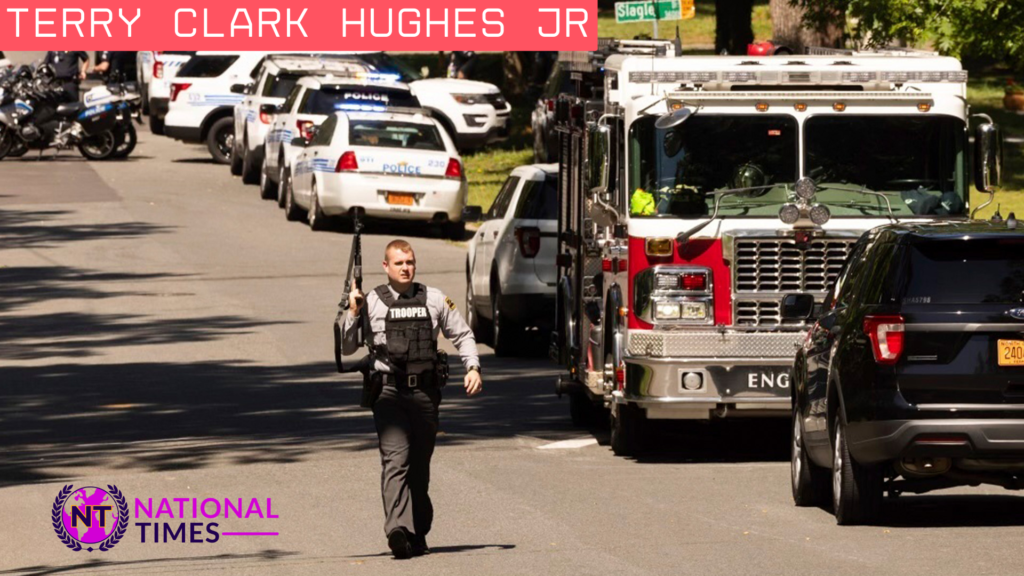Terry Clark Hughes Jr. was involved in a tragic event that had a profound effect on the community. This article delves into his life, the circumstances surrounding the incident, and the broader implications for society. Through this exploration, we aim to gain a better understanding of criminal behavior and how communities can learn from such situations to support positive change.
Who Was Terry Clark Hughes Jr.?
Terry Clark Hughes Jr. was an individual whose actions became widely known due to the tragic events that took place in Charlotte. Little is known about his early life, but what stands out is the series of decisions and situations that ultimately led to the fatal incident. His life, like many others, was shaped by complex factors that may have influenced his actions. Understanding who he was before this tragedy can offer valuable insight into the events that followed.
Although Hughes had a history that was not widely publicized, those who knew him describe him as someone who faced difficulties that many could relate to. He was an individual who struggled with various personal and environmental challenges. Unfortunately, these challenges escalated to the point where he was involved in an event that changed not only his life but also the lives of those around him.
The Tragic Event in Charlotte
The tragic event in Charlotte marked a turning point in both the life of Terry Clark Hughes Jr. and the community where the incident occurred. It was a situation that no one could have predicted, and the consequences were far-reaching. The incident resulted in the loss of life, which led to public outrage and deep sorrow within the community.
While the details of the incident are still being analyzed, it became clear that Hughes’ actions were fueled by a combination of emotional distress and perhaps mental health struggles. This tragic event serves as a reminder that even small decisions can lead to irreversible consequences.
What Led to the Incident?
Several factors may have contributed to the actions of Terry Clark Hughes Jr. It is important to consider his personal history, mental health status, and any other potential influences that could have driven him to make the decisions that led to the tragic event. Often, individuals who commit crimes are struggling with deeper, underlying issues such as trauma, substance abuse, or emotional distress.
Mental health challenges, in particular, are often a significant factor in criminal behavior. Many individuals who find themselves in difficult situations do not have the support they need to deal with their struggles in a healthy manner. In the case of Hughes, mental health and life stressors likely played a role in the choices he made.

The Impact on the Community
The impact of this event on the community was profound. Families, friends, and residents were left reeling from the consequences of Hughes’ actions. Communities that experience such tragic events often face significant emotional trauma, which can linger for years.
The people in Charlotte were not only grieving the loss of life but also struggling with the fear and anxiety that such incidents can bring. For many, it was a wake-up call to the importance of community support, mental health resources, and understanding the root causes of criminal behavior.
Lessons Learned
From the tragic event involving Terry Clark Hughes Jr., there are important lessons that communities can learn. One of the biggest lessons is the importance of providing resources for individuals who may be struggling emotionally or mentally. With better access to mental health care and support systems, it’s possible that tragedies like this could have been prevented.
Additionally, it highlights the need for a deeper understanding of the factors that contribute to criminal behavior. Communities must take proactive steps to address issues like poverty, trauma, and lack of opportunity, which can create a breeding ground for harmful actions.
Understanding Criminal Records
Criminal records can have a long-lasting effect on individuals and their futures. For those who are involved in criminal activities, these records often follow them for the rest of their lives. Understanding the full implications of having a criminal record is essential for both individuals and society as a whole.
While criminal records are important for public safety, they can also hinder an individual’s ability to find work or reintegrate into society after serving time. The stigma that often comes with a criminal record can be a significant barrier to personal growth and redemption.
Here is a basic bio table template for Terry Clark Hughes Jr. based on the article’s content:
| Attribute | Details |
|---|---|
| Full Name | Terry Clark Hughes Jr. |
| Date of Birth | [Insert date if known] |
| Place of Birth | [Insert location if known] |
| Notable Event | Involved in a tragic incident in Charlotte |
| Incident Location | Charlotte, United States |
| Occupation | [Insert if known, e.g., Student, Worker, etc.] |
| Impact on Community | Tragic event that affected local residents |
| Known For | His involvement in a significant criminal incident |
| Lessons Learned | Highlighting the importance of mental health and community support |
| Criminal Record | [Details about criminal record if available] |
| Current Status | [Insert status if known, e.g., Legal proceedings, etc.] |
Feel free to fill in any missing information if available.
Resources for Understanding Criminal Behavior
Understanding criminal behavior requires more than just studying an individual’s actions—it involves looking at the broader societal factors that contribute to crime. Many organizations provide resources aimed at understanding and preventing criminal activity. These include mental health services, support groups for families, and educational programs that teach individuals about the psychological and social factors that contribute to crime.
Access to these resources is essential for reducing the occurrence of criminal behavior in communities. By investing in these services, communities can address underlying issues before they lead to devastating consequences.
How Communities Can Support Law Enforcement
Communities play a critical role in supporting law enforcement efforts. While police officers are tasked with maintaining public safety, they often rely on the cooperation and support of the community to be effective. Communities that engage in open communication with law enforcement can help prevent crime and ensure that laws are being enforced fairly and justly.
One of the best ways communities can support law enforcement is by fostering trust and understanding. When police officers are seen as part of the community rather than outsiders, it leads to better cooperation and more effective crime prevention strategies.
Community Programs for Youth
Youth programs are one of the most effective ways to prevent crime and provide positive alternatives for young people. These programs allow children and teenagers to engage in constructive activities that build character, teach valuable life skills, and offer mentorship.
Without such programs, young individuals might fall into situations where they feel neglected or without direction, leading to negative behavior. By investing in youth programs, communities can give young people the tools they need to make better decisions and avoid the paths that may lead to criminal activity.

The Importance of Mental Health Services
Mental health services are essential in preventing crimes like the one involving Terry Clark Hughes Jr. Many individuals who commit crimes do so because they are struggling with their mental health. By providing accessible mental health services, communities can give individuals the support they need before their struggles manifest in harmful ways.
Moreover, mental health services can help individuals better cope with life’s stressors, which may prevent them from engaging in destructive or violent behavior.
Building Trust Between Police and Communities
One of the most important aspects of crime prevention is the relationship between police and the community. When law enforcement officers build trust with the communities they serve, it makes it easier to address crime and safety concerns collaboratively.
Trust can be built through transparency, communication, and mutual respect. When communities trust law enforcement, they are more likely to report crimes, offer assistance in investigations, and cooperate with efforts to reduce crime.
Understanding the Impact of Crime on Families
The impact of crime. Is not. Limited. To the community. It also affects the families of those involved. Families often experience emotional and financial hardships as a result of criminal activity. For the family of Terry Clark Hughes Jr., the aftermath of the event would have been devastating, as they not only had to deal with the loss of a loved one but also the consequences of his actions.
Understanding how crime affects families is essential for creating better support systems for those left behind. Communities and organizations should work together to assist families who are coping with the emotional and financial burdens of crime.
The Role of Media in Reporting Crime
The media plays a powerful role in shaping public perception of crime and criminal behavior. How the media reports on events like. The tragedy involving Terry Clark Hughes Jr. can influence the way the community reacts. While it’s important for the media. To provide accurate and timely information, it’s equally important to ensure that the reporting. Is responsible and doesn’t sensationalize the situation.
Media outlets should be mindful of how their coverage affects public opinion, and they should strive to report in a way that promotes understanding and supports positive change.
The Bottom Line
In conclusion. The life and actions of Terry Clark Hughes Jr. Serve as a reminder of. The complex factors that contribute to criminal behavior. While the incident was tragic. It also offers valuable lessons about the importance of mental health, community support, and law enforcement collaboration. By understanding the root causes of criminal. Activity and working together to address these issues, communities can create a safer, more supportive environment for everyone.






